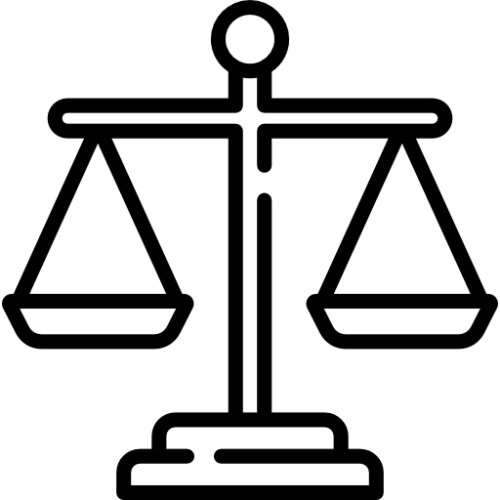Best Criminal Defense Lawyers in Arrecife
Share your needs with us, get contacted by law firms.
Free. Takes 2 min.
List of the best lawyers in Arrecife, Spain
About Criminal Defense Law in Arrecife, Spain
Criminal defense law in Arrecife, Spain, focuses on protecting the legal rights of individuals who are suspected or accused of committing criminal offenses. Arrecife, as the capital of Lanzarote in the Canary Islands, operates under the broader framework of Spanish criminal law but also takes into account certain local judicial practices. Spanish criminal law is governed by the Código Penal (Criminal Code), which outlines various crimes from minor infractions to serious felonies. Effective criminal defense in Arrecife involves ensuring that the accused receives a fair trial, due process, and access to legal representation at all stages of the criminal justice process, from initial investigation through to trial and potential appeal.
Why You May Need a Lawyer
There are several situations where individuals in Arrecife may require the expertise of a criminal defense lawyer. You might need legal assistance if you are being investigated by police, have been formally charged with a crime, have received a court summons, or if you believe your rights have been violated during legal proceedings. Common cases where a criminal defense lawyer can help include accusations of theft, assault, drug offenses, driving under the influence, domestic violence, or even more severe offenses such as homicide. Additionally, if you are a foreigner or a tourist facing criminal accusations, having local legal representation is crucial for understanding the local procedures and language. Lawyers can also negotiate with prosecutors, challenge the evidence provided by the prosecution, and help reduce charges or sentences.
Local Laws Overview
Criminal defense in Arrecife is governed by Spanish law but also reflects the unique context of the Canary Islands. Key aspects relevant to criminal defense include:
- Presumption of innocence: Every individual is presumed innocent until proven guilty by a competent court.
- Right to legal representation: Anyone accused of a crime has the right to a lawyer, including access to a court-appointed lawyer if they cannot afford one.
- Police detention procedures: Spanish law mandates that suspects can be held for a limited period before appearing before a judge. Typically, this period is up to 72 hours.
- Language rights: Non-Spanish speakers have the right to interpretation services during police questioning and court hearings.
- Criminal records: Convictions are registered and can affect employment or travel. Certain records may be expunged after a period.
- Special local offenses: Arrecife, as a touristic hub, sees particular enforcement on drug-related crimes, public order offenses, and crimes affecting tourists.
- Alternative measures: For minor offenses, Spanish law may provide for less severe sanctions, such as community service or fines, instead of imprisonment.
Frequently Asked Questions
What should I do if I am arrested in Arrecife?
Remain calm, ask to speak with a lawyer, and avoid making statements to police without your lawyer present. You have the right to be informed of the reason for your arrest and to access legal counsel.
Can I have a lawyer even if I cannot afford one?
Yes, Spanish law guarantees the right to a court-appointed lawyer (abogado de oficio) for those who cannot afford private legal representation. Request this as soon as you are detained.
How long can I be held in police custody?
For most alleged offenses, you can be detained by police for up to 72 hours before you must be brought before a judge to determine whether you will be released or formally charged.
Will I need to attend court in person?
In most cases, yes. For certain minor offenses or if you have legal representation, the court may allow proceedings without your personal attendance. Your lawyer will advise on your specific situation.
What happens if I do not speak Spanish?
You have the right to an interpreter throughout the proceedings, from police questioning to court appearances, to ensure you fully understand the process and can defend yourself effectively.
What is the difference between a misdemeanor and a felony in Spain?
Spanish law distinguishes between delitos leves (minor offenses) and delitos graves (serious offenses). Serious offenses carry harsher penalties, including longer prison sentences, while minor offenses may result in fines or community service.
How do appeals work in criminal cases?
If you are convicted, you have the right to appeal the decision. Appeals must be filed within a set time frame after the judgment is issued, and your lawyer can guide you through this process.
What are my rights during a police search?
Police generally require a warrant to search your home unless there is an emergency or your consent is given. Always ask to see the warrant and consult your lawyer if you are unsure.
As a tourist, what should I know about criminal procedures?
Tourists have the same rights as residents regarding criminal defense. It is crucial to request legal representation and an interpreter if needed. Your consulate can also provide support and contact information for local lawyers.
Can criminal records be erased in Spain?
Under certain circumstances, and after a legally specified period without reoffending, you may apply to have your criminal record expunged. Your lawyer can explain if you qualify and guide you through the application process.
Additional Resources
Several resources and organizations are available to assist with criminal defense matters in Arrecife:
- Ilustre Colegio de Abogados de Lanzarote (Bar Association of Lanzarote) - Offers information on appointing a lawyer and legal aid.
- Servicio de Orientación Jurídica - Legal guidance service provided by local bar associations.
- Juzgados de Arrecife (Arrecife Courts) - Where criminal cases are processed and tried.
- Consulate or Embassy - Provides assistance to foreign nationals facing criminal charges.
- Local police and civil guard offices - For reporting a crime or obtaining initial information after an arrest.
- Non-profit organizations supporting victims and accused persons, such as OID (Oficina de Información y Derechos).
Next Steps
If you or someone you know is facing criminal allegations in Arrecife, Spain, swift action is essential. The first step is to contact a qualified criminal defense lawyer familiar with the local legal system. You may approach the Bar Association of Lanzarote to request a lawyer, or, if detained, ask police for access to a court-appointed lawyer. Gather any relevant documents or information about the incident, and avoid discussing your case with others or on social media. Remember, asserting your rights from the outset will help achieve the best possible outcome. If you are a visitor or non-Spanish speaker, notify your consulate for additional support as you navigate the legal process in Arrecife.
Lawzana helps you find the best lawyers and law firms in Arrecife through a curated and pre-screened list of qualified legal professionals. Our platform offers rankings and detailed profiles of attorneys and law firms, allowing you to compare based on practice areas, including Criminal Defense, experience, and client feedback.
Each profile includes a description of the firm's areas of practice, client reviews, team members and partners, year of establishment, spoken languages, office locations, contact information, social media presence, and any published articles or resources. Most firms on our platform speak English and are experienced in both local and international legal matters.
Get a quote from top-rated law firms in Arrecife, Spain — quickly, securely, and without unnecessary hassle.
Disclaimer:
The information provided on this page is for general informational purposes only and does not constitute legal advice. While we strive to ensure the accuracy and relevance of the content, legal information may change over time, and interpretations of the law can vary. You should always consult with a qualified legal professional for advice specific to your situation.
We disclaim all liability for actions taken or not taken based on the content of this page. If you believe any information is incorrect or outdated, please contact us, and we will review and update it where appropriate.
Browse criminal defense law firms by service in Arrecife, Spain
Arrecife, Spain Attorneys in related practice areas.











